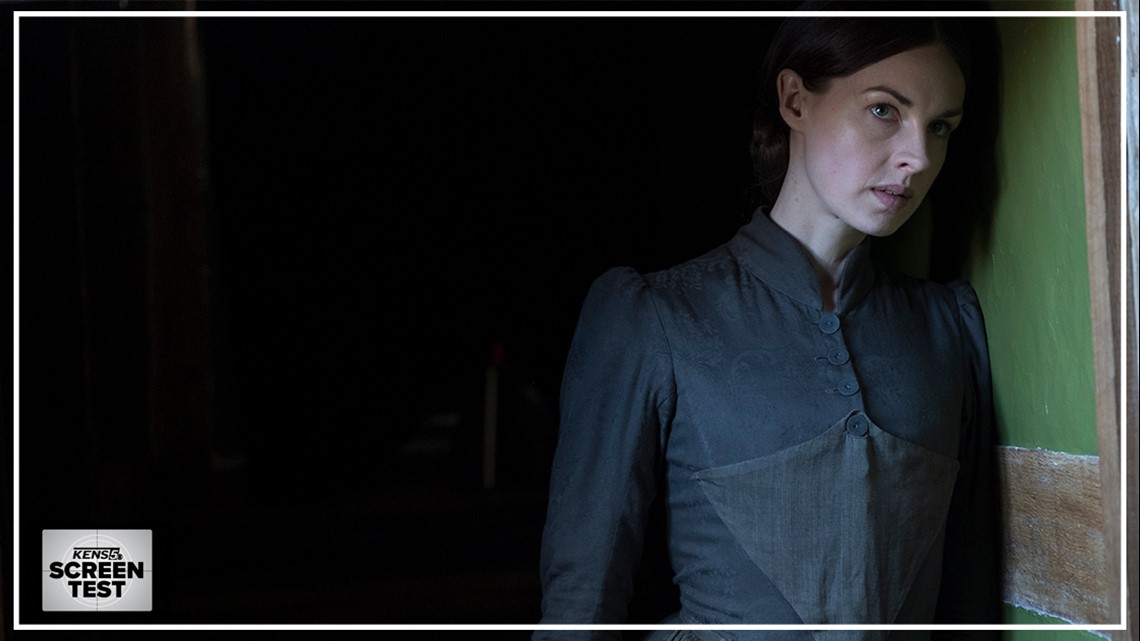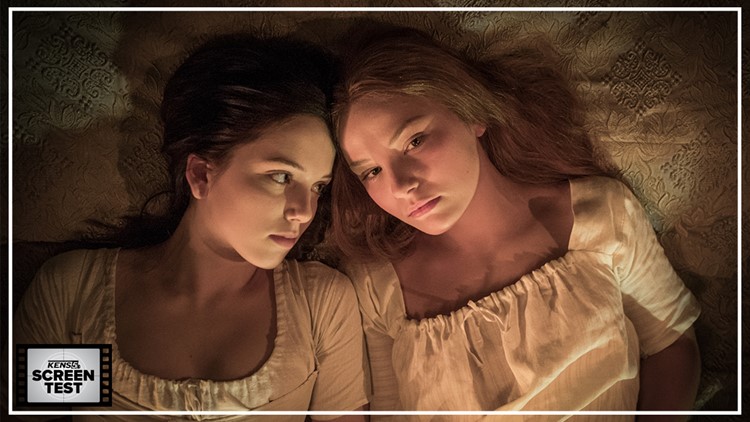One of the most cathartic developments the movies can bring us when a protagonist has broken free from the social systems keeping them shackled, whether they’ve realized it at the time or not. Think of Dani’s face at the climactic final moments of “Midsommar,” where agony and ecstasy finally come to a head. Or, to find an example in a (much) more mainstream movie, Neo’s eyes being opened to the realities of a machine-run world—a grim discovery matched by newfound capabilities that can now be uploaded directly to his organic hard drive.
Taking cues from the supernatural-tinged romances of Emily Brontë and the gauzy visual syntax of contemporary period horror, “Carmilla” is an atmospheric, largely uninteresting slow build of and to moments of emotional liberation for its protagonist when an unexpected guest (and the title character) steers her onto the path she’s been searching for. Like the teenaged Justine in Julia Ducournau’s “Raw” – another recent horror-adjacent coming-of-age tale – “Carmilla’s” Lara slowly begins to indulge sensual pleasures in macabre scenes of self-actualization.
These grotesque moments are what I remember the most after the credits have rolled, but “Carmilla” – written and directed by Emily Harris – also left me frustrated that it was so closed off to the humanity of its characters in favor of beating home the hellish domestic sphere Lara is trying to escape from—without ever translating the urgency of her entrapment. There’s an oppressively heavy mood pressing in on all sides, but Harris’s screenplay does little to help decipher the source of it beyond the puritanical tropes that other filmmakers have shaped into more interesting stories.
“Carmilla” is an appropriately foreboding tale through and through; you’ll be tipped off early with its ominous music cues, extreme close-up shots of creepy crawlies wriggling through grimy earth and occasional talk of the “spirits” that reside in the hills on the horizon. In between these moments, we meet Lara (played rather uncomfortably by Hannah Rae), biding her time in a household dominated by tradition (read: patriarchal superiority) and suffocating chastity. She’s mesmerized by the gory surgical images that fill the book of her doctor father, played by Tobias Menzies—at least until she’s caught by Miss Fontaine (Jessica Raine), her caretaker, surrogate mother and flaming-sword-wielding guardian constantly keeping Lara from following her temptations into the proverbial Garden of Eden. She ensures Lara remembers her prayers every night, with the thorny insistence of the devil.
Instead of comfort, Harris depicts religiosity in her movie with a paranoia; it’s associated with a slow-creeping dread and waves of enveloping shadows (the cinematographer here is Michael Wood) that reminded me of Robert Eggers’s “The Witch.” But while “The Witch” masterfully aligned character with aesthetic, “Carmilla” is imbalanced towards the latter. There’s such insistent emphasis on the rigid socioeconomic structures that Lara is struggling against that the film doesn’t give itself space to explain character motivations beyond archetypical roles.
An early dream sequence that finds Lara digging her hands into the bare chest of a local commoner until blood comes bubbling up is strange and provocative, sure. Though with such a surface-level understanding of Lara as a character, and without any way to contextualize her hallucinations beyond linking them to the bloody drawings she’s drawn to, the scene comes off feeling just as impulsive as Lara herself—with no bearing on what comes next. It’s strange and provocative just for the sake of being strange and provocative.
Lara finds a guiding light of sorts – or perhaps a siren song – when a girl, unconscious after a carriage crash that killed the driver, is rushed to the home to be nursed by the doctor. Angel-faced and curiously unaware of who she is or where she was going, Lara and her new housemate – who takes a liking to the name Carmilla (played by Devrim Lingnau) – strike up a connection that would seem insidious if it didn’t feel so clearly like the timely escape Lara has been looking for. The question of Carmilla’s identity comes to anchor of the movie’s drama, but “Carmilla” provides no hints, let alone misdirects on the matter. She’s an ambiguous element in an otherwise obvious story, so we can sympathize with Lara being drawn to her strange luster. We are, too, despite the movie leaving any dependable idea of who Carmilla really is (or what she is) up to our imagination. The characters weren’t interesting enough for me to engage my own.


It seems like what “Carmilla” wants us to feel is conflict as Lara is pulled between two modes of thinking, with Carmilla on one side and Miss Fontaine on the other in a battle for her soul. That isn’t much of a problem, though, when simply being left-handed is viewed by Miss Fontaine as a sign of devilish influence.
In that case, maybe the intention is to feel Lara's catharsis. But Harris's screenplay lacks a certain elegance needed to show her path forward. A tinge of the supernatural exists on the edge of every frame, seemingly ready to burst into the story and insert new complexity, but the edges of the frame are largely where it stays as the movie progresses. And as Lara and Carmilla increasingly act on blossoming infatuation, Harris’s explorations of a lesbian relationship feel like they exist only to serve ominous undertones of a more sinister story that we only get flashing glimpses of.
Admittedly, while the conclusion offers no real surprises, “Carmilla’s” final minutes introduce a much-needed pang of consequence. But where the story leaves us is something either too literal to serve as metaphor or too withholding to fully engage with. The tonal pendulum swings wildly in “Carmilla,” but it doesn’t break through to new ground.
"Carmilla" is not rated. It's available via virtual cinema options starting Friday.
Starring: Hannah Rae, Devrim Lingnau, Tobias Menzies, Jessica Raine
Directed by Emily Harris
2020
OTHER SCREEN TEST REVIEWS:
- ‘The Old Guard’ Review: Netflix’s comic book action-drama is a character study that shows what we’ve been missing
- ‘Greyhound’ Review: Tom Hanks stars in one-trick World War II drama honoring heroes of wartime past and cinematic present
- ‘Palm Springs’ Review: Andy Samberg and Cristin Milioti star in 2020’s most unexpected pandemic-era allegory
- ‘Desperados’ Review: Netflix’s latest will take you through the seven circles of cliché hell
- 'The Truth' Review: Catherine Deneuve shines in Hirokazu Kore-eda's drama about family, memory and narrative
- ‘Eurovision Song Contest’ Review: Overlong Will Ferrell-Rachel McAdams comedy is enjoyable when it leans into the outrageous
- The best movies from the first half of 2020
- ‘My Spy’ Review: Dave Bautista’s talents are wasted in uninspired genre mashup
- ‘House of Hummingbird’ Review: Tender South Korean drama finds empathy in harrowing moments of teenagerdom



